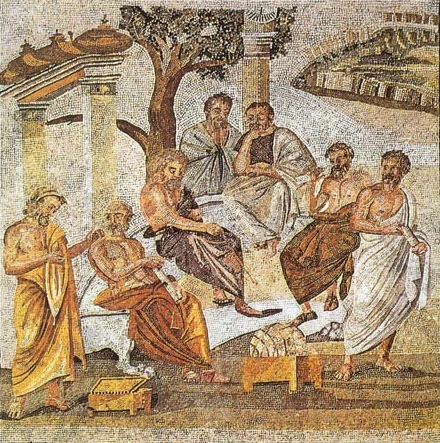
Educating graduates and undergraduates is a central part of my development as an academic. I've been fortunate enough to have a wide variety of teaching experiences in New York, Georgia, Indiana, Florida, and California.
Working with undergraduates has been gratifying not only with my success in introducing students to a world of critical inquiry but also in the way in which addressing my students' difficulties with analytical writing and thinking has revitalized and refined my own research and writing. Teaching graduate students pedagogical and professional skills, things that many universities leave their graduate students to catch as catch can have had much of the same sort of reflective benefit: I am now more cognizant of my own teaching skills and the pedagogical tenets behind those skills.
In all of my teaching experience, graduate and undergraduate alike, I've tried to keep in mind that although coverage of material is crucial, it's more important to teach students skills than things, and secondly, that students learn skills best through an interactive teaching style that demands their participation and challenges their abilities. Certainly, all students need grounding in their disciplines, and lecture has its place, whether in providing beginning media students with a basic vocabulary and form or in introducing composition students to the concept of a research paper.
But I m not so interested in whether students know these concepts; rather, I want to see them put these to critical use: I want students to see how words, images and performance balance out I want students to use their research papers to explore issues that are of importance to them and to their communities.
My teaching philosophy has both traditional and radical roots, and rests, finally, on making myself not so much an expert in my field, but a partner in learning. In the long term, the greatest gift I can give to my students is to educate them and ultimately make myself obsolete.
I frequently ask students to turn in drafts of their papers, which not only allows me a chance to intervene in their process, but also prompts them to see critical thinking and writing as engagement and re-engagement with a text, idea, or problem. My students edit each other's papers not only to make them better editors and self-evaluators of their productions but also to remind them that they, as well as I, can recognize and produce compelling performances and argumentation. I often assign students to small working groups, in class and out, where they are not only more likely to be more active participants than in a full-class discussion but are also more likely to engage each other in a debate about and refinement of their ideas. I provide class websites and ask each student to post weekly entries, one of which answers one of several discussion questions they're given in class, or postings that respond to two other students' answers. The level of critical exchange that these assignments have generated has convinced me that electronic media play an important role in interactive pedagogy.
Because I require my students to risk a great deal it's never easy to give a presentation or send an e-mail posting knowing that your classmates and your instructor are watching, listening, or reading carefully. I also work to make my classroom a safe environment. My media assignments always include a correct or acceptable way of communicating online.
I begin each course with an introductory exercise designed not only to combat the anonymity of many college classrooms, and to encourage a sense of camaraderie and supportiveness among students. I've also found, however, that an open exchange between students and teachers and among students themselves can only take place when the instructor provides structure and direction. Students need a clear idea of what's expected of them in the classroom and in their assignments. I always provide students with a detailed policy statement, a day-by-day syllabus, and an outline of class objectives on the board at the beginning of every class. I make every effort to make my assignments clear and concise, to provide examples of responses to the assignment, to inform students of the criteria by which I will grade the assignment, and to teach quick sessions on problems I believe my students might encounter in fulfilling the assignment. I almost always devote some class time to teaching communication concerns such as developing a thesis, structuring an argument in classes for first-year students, I go so far as to spend a little time discussing some methods for reading and marking a text. In short, I do everything I can to create a dependable structure within which my students can take the risks that are necessary to their intellectual development and independence.